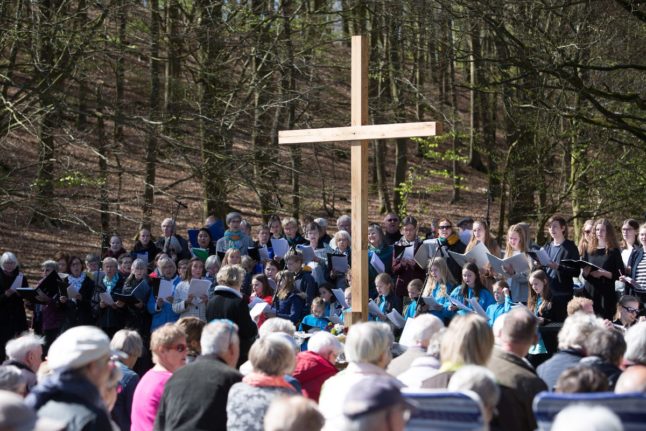Maundy Thursday marks the Last Supper, the day when Jesus was betrayed by his disciple Judas at a Passover meal, and depending on whether you’re speaking Swedish, Danish or Norwegian, It is known as skärtorsdagen, skærtorsdag, or skjærtorsdag.
Historically, it has also been called “Shere” or “Shere Thursday” in English with all four words “sheer”, meaning “clean” or “bright”.
In the Nordics, whether or not it is a public holiday not depends on where you are: workers in Denmark, Norway, Iceland, and the Faroe Islands get the day off, but those in Sweden and Finland don’t.
The difference goes back to Sweden’s split from Denmark with the breakup of the Kalmar Union in 1523, and then the different ways the two countries carried out the Reformation and the establishment of their respective Lutheran churches.
When Denmark’s King Christian III defeated his Roman Catholic rival in 1536, he imposed a far-reaching Reformation of the Church in Denmark, initially going much further in abolishing public holidays than anything that happened in Sweden.
“Denmark carried out a much more extensive reduction of public holidays in connection with the Reformation,” Göran Malmstedt, a history professor at Gothenburg University, told The Local. “In Denmark, the king decided in 1537 that only 16 of the many medieval public holidays would be preserved, while in Sweden almost twice as many public holidays were retained through the decision in the Church Order of 1571.”
It wasn’t until 200 years later, that Sweden’s Enlightenment monarch, Gustav III decided to follow Denmark’s austere approach, axing 20 public holidays, Maundy Thursday included, in the calendar reform known in Sweden as den stora helgdöden, or “the big public holiday slaughter”.
Other public holidays to get abolished included the third and fourth days of Christmas, Easter and Pentecost, ten days celebrating Jesus’ apostles, and the three days leading up to Ascension Day.
“It was only when Gustav III decided in 1772 to abolish several of the old public holidays that the church year here came to resemble the Danish one,” Malmstedt said.
At the time Finland was simply a part of Sweden (albeit one with a lot of Finnish speakers). The other Nordic countries, on the other hand, were all part of the rival Denmark-Norway.
So if you live in the Nordics and are having to work on Maundy Thursday, now you know who to blame.



 Please whitelist us to continue reading.
Please whitelist us to continue reading.
Member comments